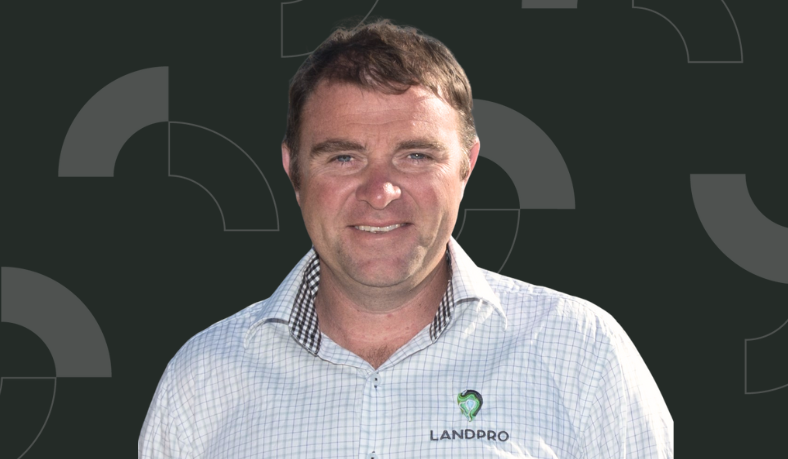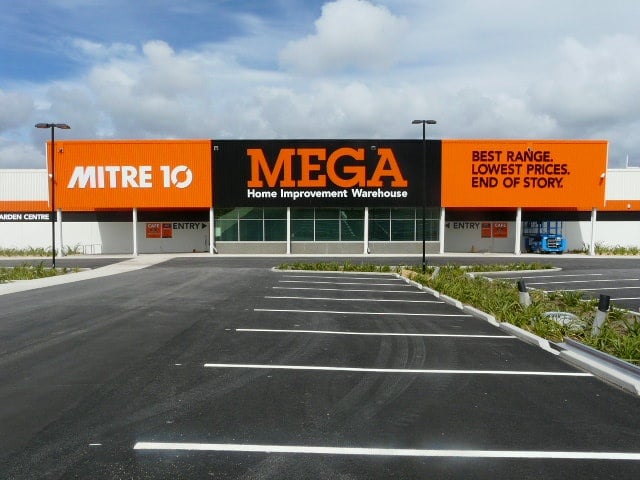Mapping Success: How Mike Borthwick Helped Shape the Growth of Landpro


Mike Borthwick is an executive director of surveying and resource management business Landpro. With HQ in Cromwell, the team has “mapped, measured and analysed more land than you can shake a stick at and talked about water until the cows came home.” Mike is a graduate of Owner Manager Programme 54.
What was life like before you joined the Landpro business?
I was a project manager in Australia for 10 years, working in oil and gas, mining, roading and rail. I could be anywhere in Australia, New Zealand or Southeast Asia on any day. When my first child was born it was ok, she didn’t mind where I was but when my son was born things were 100 per cent different – he would scream for two days when I left and then I couldn’t get near him when I came back, so that was the catalyst for change.
Why Cromwell and why Landpro?
We had always liked the Central Otago area, so I flicked my CV out to different companies, and this was just before the GFC, it was a boom time - I got a job offer from every single company.
I was careful with my selection because I knew from my experience in Australia that trouble was coming. I wanted a business that I trusted to survive the bust. Landpro was called BTW South at that time and there were four of us. That’s since grown to 70.
The business was a start-up, and I liked that. It was small and there was real drive and passion - I could see the opportunity to build something special. There was a strategy to combine rural with a mix of property development and mining so when the GFC did hit and property development slowed, the primary industry projects kept rolling in and allowed us to attract valuable staff and be a leader in the space.
As is the norm’ when money’s tight, it’s the rural sector that keeps the economy going.
Landpro grew fast - where did the growth come from?
I moved into the survey manager role and demonstrated my worth to the business, becoming a shareholder director in 2012 with Kate Scott and Kathryn Hooper. By 2014 we had rebranded to Landpro and Kath joined as Executive Director opening the New Plymouth office in 2017.
The primary industry and mining projects enabled us to grow in that rural sector and we were ready to contribute to the land development space as it came back across the country. It never really stopped in this area; we haven’t seen the same kind of decline in property prices that other regions have experienced.
Land development has seen Cromwell and Wanaka growing steadily and about 60% of the population is now tied up in the building industry so if the town isn’t growing that’s a lot of people without an income, but for us that growth has got to be sustainable.
We spent time preparing for a growth push, getting our systems in place and getting the people infrastructure in place - we grew from a team of 40 to 70 people in a three-year window. Covid hit and we realized we had some significant shortages in our skill sets, particularly around finance and resilience, and that’s when we started looking at what support was available.
How did you decide on Icehouse for help?
Kate had attended a Harvard professional services residential course, and she loved it but that wasn’t practical for me because of my hands-on role in the company. We had heard about the Icehouse so I did some digging and it looked like the best return on the time and cost investment required.
The finance part of the Programme was exactly what I needed. Before the Icehouse, we ran the budget OK and as long as we were tracking in the right direction then that was good. But the Icehouse made me look at the business with a different perspective. I admit now that we hadn’t forecasted the cost of growth anywhere near what it actually cost.
Our cashflow was strained and I needed the time away to listen to other people and get clarity around decisions.
The Icehouse gave me not only clarity but also some sanity. We put a hold on growth and instead we refined our processes and people so that efficiency came back into the business.
The problem was that when you grow, your processes need to grow with you, and we hadn’t kept up with that. The processes that were suitable for 10 people weren’t fit for 70.
Now we’re focused on developing the next layers of people growing underneath us. We enrolled some of the team on the Icehouse Leadership Development Programme and those people have now taken more responsibility for running the company, alongside our CEO Jason.
Kate is now the CEO of Horticulture NZ, so she has stepped back from day-to-day operations and we feel that our senior leadership team now has the capability to take on the management of the teams.
How do you manage the business with multiple shareholders, and do you have any tips for other business owners in similar situations?
One of the most helpful aspects is understanding each other’s personality traits. By understanding how each person thinks and their thought processes, you can have really constructive conversations when there are differing opinions.
We, as a team of three owners, don’t always agree or see the path ahead in the same way, but we’ve never made a decision that we didn’t all agree with. While that may seem like someone just goes along to keep the peace, it’s far from that.
Having the knowledge of how the team (doesn’t matter if its owners, leadership team, or simply the broader team) thinks and what drives their decision-making process allows everyone to share so much more effectively, for better outcomes.
So, I guess the tip is, get some advice on what is right for you (as there’s so many different models out there), and then use it, refer back to it and reflect on it, if something did or didn’t go as smoothly as it could have.
What sets you apart from others in the industry?
It’s about being honest and being able to do that in a constructive way because some projects just aren’t going to fly and some shouldn’t fly.
We have nationwide teams focused on land development projects. We sit across the majority of New Zealand’s mining projects and are dedicated to making those projects sustainable. We service 55% of the dairy farmers in Southland and our planning teams help them to make improvements and refinements to their systems that will make them more profitable without putting more cows on the land.
The reality is that 95% of farmers do an incredible job and we need to tell those stories and share the environmental wins that are being achieved all the time.
Learn more about the Owner Manager programme - for ambitious kiwi business owners looking to grow smarter and faster.


